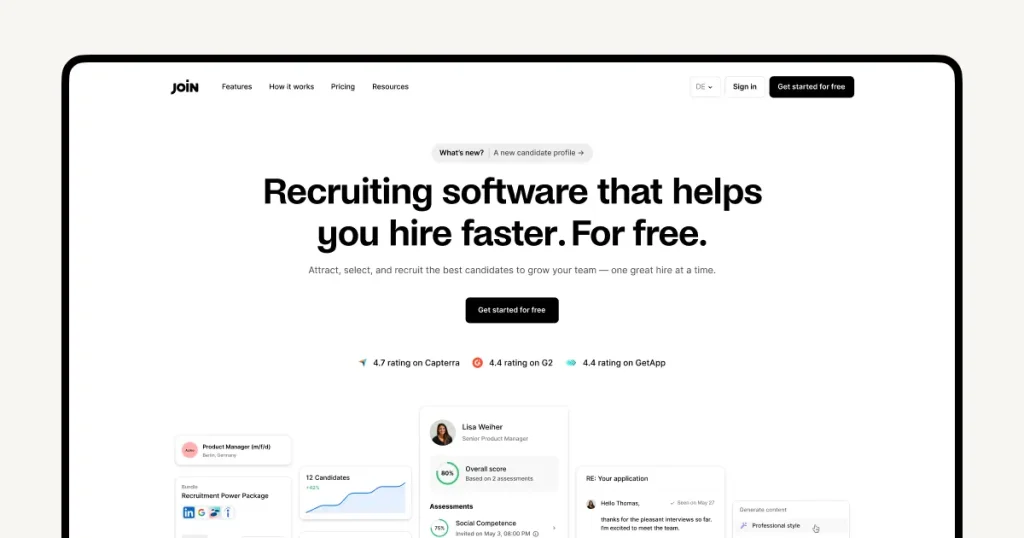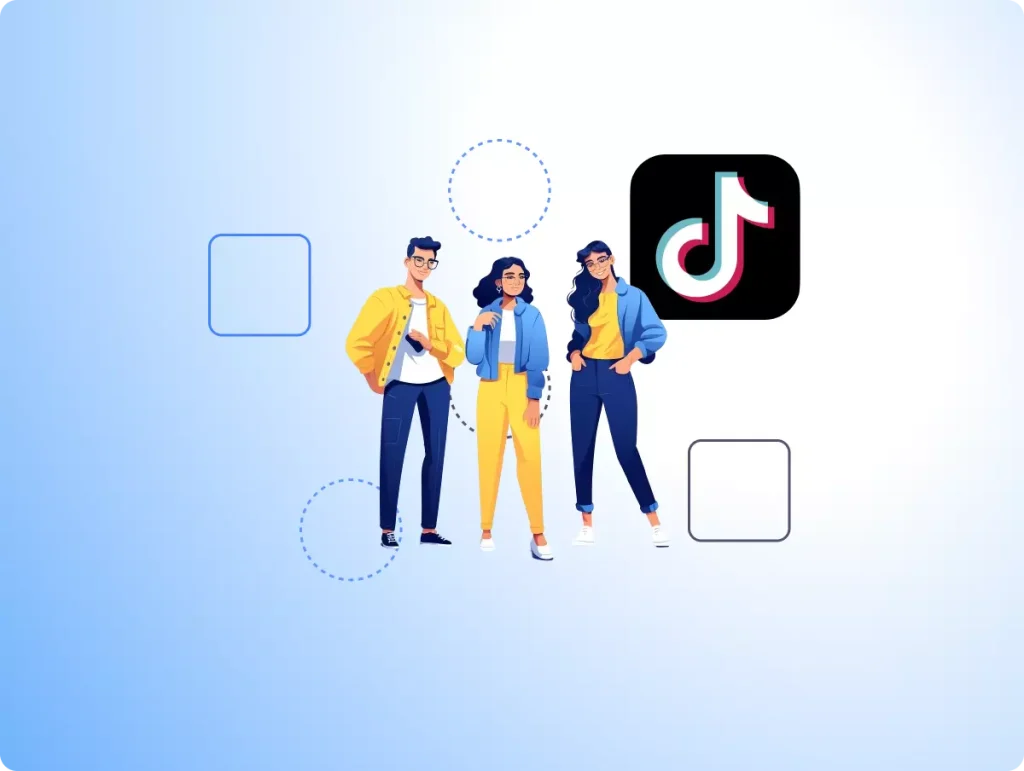Autism in the workplace: What you should know
In most companies, hiring autistic workers isn’t common. Whether it’s a deliberate decision not to hire autistic adults, or rather a matter of unconscious bias (or misunderstanding). Either way, these companies might unknowingly be missing out on talented members for their team.
Table of contents
Just because someone is somewhere else on the spectrum than most of your colleagues doesn’t mean they can’t make a great team member. In fact, neurodiverse and autistic adults in the workplace are often proven to be valuable assets.
Unfortunately, people on the autistic spectrum are too often discriminated against (whether consciously or not). They generally receive fewer opportunities in the workplace. And research has repeatedly found that unemployment rates among autistic people are some of the highest—if not the highest—of any group of people with a disability. Why is that?
In this article, we dive deeper into hiring autistic workers and their position in the workplace. What are some benefits your organisation can expect when working with autistic adults?
- Before talking about autism
- Why autism is still uncommon in the workplace
- 5 main benefits of hiring autistic workers
Before talking about autism
Diversity, equity, and inclusion (DEI) are now high on many companies’ agendas, which means autism and other forms of neurodiversity (such as dyslexia) are slowly becoming better understood, accepted, and welcomed in the workplace.
But too often the way people speak of autism is still not correct, and in some cases even harmful. So before we start talking about the benefits of hiring autistic workers, let’s quickly look at the terminology and what different types of autism there are.
Definition of autism
Let’s begin this small section with a note by the National Autistic Society in the UK: “The definition of autism has changed over the decades and could change in future years as we understand more”.
Moreover, different people have different experiences and opinions about how autism should be defined and what actually makes a person autistic. Autistic people may define themselves very differently compared to how people who are not autistic talk about autism (me, the author of this article, included).
That’s why the definition provided below might not be in line with everyone’s view, as we are merely trying to explain what autism might entail.
Autism terminology
Autism is the umbrella term used for a wide range of related yet distinct conditions. This range is referred to as the autism spectrum. Conditions vary, but they are characterised by how individuals experience the world and how they communicate and interact with the people in it.
The dominant medical term used to be autism spectrum disorder (ASD), which is still often used to refer to autism. However, due to the negative connotation of the word “disorder”, many people have started referring to it as autism spectrum condition (ASC) instead, or simply autism.
Similarly, whereas it was once classified as a neurodevelopmental disorder, it is now more commonly referred to as part of neurodiversity. Neurodiversity signifies the natural diversity between humans and how they think and experience things differently.
This also means that many people believe that autism shouldn’t be seen as a disease, illness, or medical condition. Instead, it simply means someone’s brain works differently from the brains of other people. They see autism as a difference to acknowledge rather than a disease to cure.
Note that when a person’s neurodiversity significantly impacts their daily life, autism is often referred to (and generally accepted to be classified as) a disability. However, similar to the use of the word disorder, not everyone agrees with calling autism a disability.
Additional related terms include Asperger’s, Asperger syndrome, and high-functioning autism (HFA). These names were used to describe a subtype of autism where the person doesn’t experience problems with intellectual development or impairment of communication.
However, in recent years, these terms have been included in the umbrella term autism spectrum disorder (or condition) and are no longer used when diagnosing someone on the spectrum.
For more information about terminology and aspects, you can visit dedicated websites like autism.org.uk or autism.org.
Why autism is still uncommon in the workplace
So we’ve seen what autism is, but how does this relate to the labour market? More importantly, why is it still so relatively uncommon for companies to hire autistic people?
The answer lies in three main points employers often (albeit unconsciously) lack when hiring autistic workers:
- A lack of awareness
- A lack of understanding
- A lack of motivation to provide the right working conditions
And much of this actually starts with what we discussed in the previous paragraph: How people talk about autism.
Autistic people are often infantilised, subjected to “othering”, stereotyped, or downright discriminated against through the use of harmful ableist language. And many recruiters and employers alike still hold prejudices and incorrect beliefs regarding autistic workers. Even when recruiters or employers are trying to be inclusive, they may still fall into the trap of the three points listed above.
For example, employers are often not aware that autistic professionals may be as much as 140% more productive than non-autistic employees in the same role—as long as the person is well-matched with a job that fits their unique skill set.
Similarly, employers may assume that accommodating and putting a more tailored hiring process in place for autistic professionals will be more expensive. But research has found that employing an adult with autism actually doesn’t incur additional costs.
Of course, there are steps that need to be taken to tailor the process to meet the needs of autistic employees. We more thoroughly discuss what steps to take in our separate article on this topic:
Common employment difficulties faced by adults with autism
- They may lack certain soft skills, such as verbal communication, which can result in a higher chance of not making it through the interview process
- They may struggle with time management and planning their workload
- They may have trouble socially interacting with other team members, resulting in colleagues (and employers) thinking they’re not a good enough cultural fit
- They may feel uncomfortable with change, which can make working in an unstructured and constantly changing work environment (like a startup) difficult
- They may struggle with multitasking and working cross-functionally
What all these points highlight is that there are certain skills and traits that autistic professionals might struggle with.
But instead of disqualifying autistic candidates based on the lack of some of these skills, employers should rather harness the strengths and benefits of hiring autistic adults and embrace the potential of the employee being a culture add. And that’s just one of the benefits of hiring autistic workers.
5 main benefits of hiring autistic workers
We already hinted at a few of these throughout the text. But here is an overview of the five biggest benefits of hiring autistic people.
Yes, your business might need to provide a bit more support and accommodation than it would for other team members. But in return, your company will be strengthened with new skills and ways of thinking that can help your team thrive like never before.
1. Diverse teams perform better
This point not only applies to autistic workers, but to the promotion of a more diverse workforce in general. And this has been repeatedly proven by numerous studies.
It supports that the team will thrive when people are hired based on the right skills and placed in a psychologically safe working environment. By leveraging the unique skills of autistic professionals and allowing them to work in a way that’s best for them, you can expect better team performance and, ultimately, more revenue.
2. Unique skills and qualities
Speaking of leveraging unique skills: Did you know that autistic people consistently score better than others on the Embedded Figures Test? Or that they often have exceptional attention to detail? This means small mistakes are much less likely to slip through the cracks.
And traits that might seem negative at first—like not having a filter and always speaking their mind—might actually be extremely effective when working in a company with a candid and open feedback culture.
3. They may love what others hate
What some may see as repetitive and solitary tasks that quickly get boring, someone on the autism spectrum might actually love doing. So finding such tasks and projects for autistic professionals to work on can be a great solution.
The result is that the autistic worker does work they enjoy and feel comfortable doing, while the current team members don’t have to do the work they dislike. A win-win situation!
4. Strong drive, commitment, and loyalty to the company
Autistic team members are often incredibly passionate about and interested in the work they do, which means they will tackle your project with great drive and precision.
And this drive will likely extend to their commitment to the company as a whole. In fact, large corporations like Microsoft and JPMorgan Chase have found that employee retention among their autistic workforce was as high as 90%!
This type of loyalty and commitment is particularly important during times of the Great Resignation, as companies struggle to retain top talent.
5. Strengthens employer branding and company culture
Although this should never be your main motivation for hiring a diverse workforce, it does create a welcome added benefit.
A diverse and inclusive workforce is a critical selling point for the younger generation looking for a job. Showing your company contributes to the promotion of such ideals means you can expect bonus points for your employer branding and company culture.
And having a diverse workforce can also help increase the number of diverse candidates that apply to your company. As they see that they are represented and valued at your company, they will be more likely to apply to join your team.
Opportunities, not obstacles
As the call for a diverse and inclusive workplace keeps growing, it’s time to make it a reality. And to do so, we not only have to be aware and mindful of all aspects that make us diverse, but we need to promote and celebrate them.
By understanding more about how different people have different strengths and work in different ways, you can not only create a diverse and inclusive team, but one that excels and thrives.
Curious to find out more about how to build a diverse dream team? Then check out our article on 13 steps to improve your diversity recruiting strategy.
Frans Lelivelt
Frans is JOIN's multilingual Senior Content Manager. His main topic of interest in the recruitment space is DEI and how companies can reduce their (unconscious) biases to make the world of work a fairer, kinder place for everyone. Outside of work, he tries to do the same for animals, spending much of his spare time in the kitchen preparing plant-based feasts.


